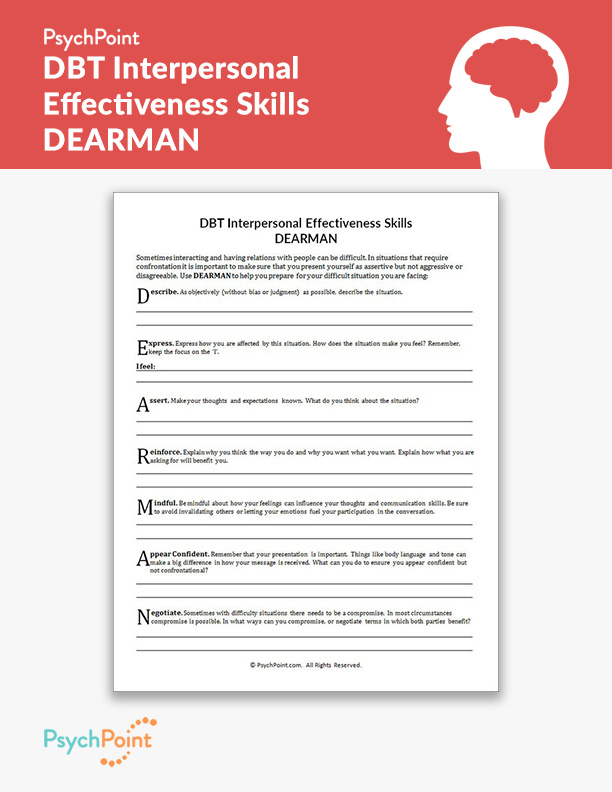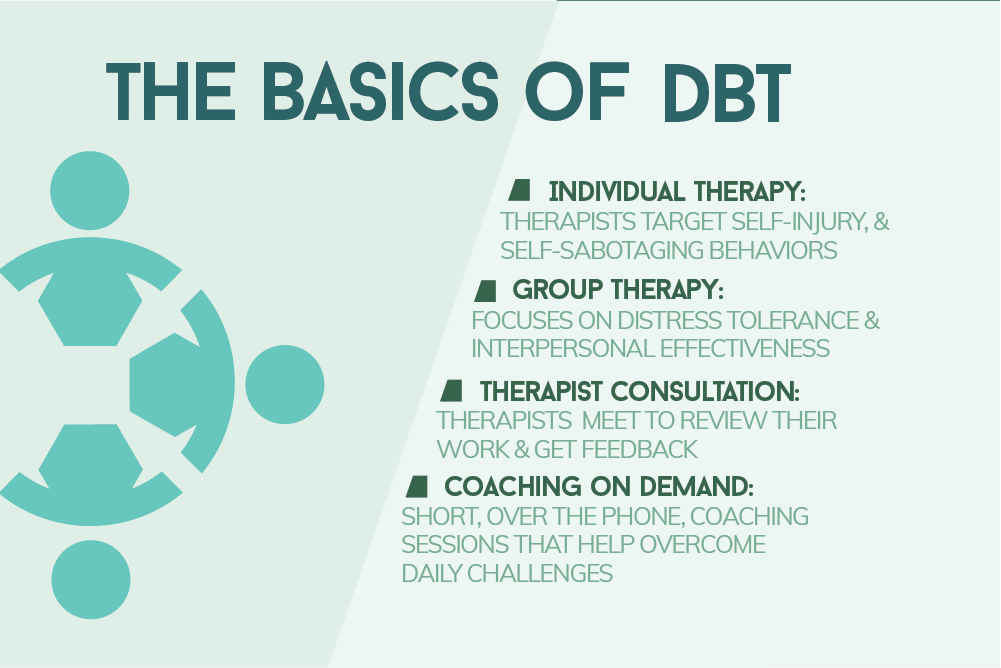OBJECTIVES EFFECTIVENESS: Getting the “thing” I want ' when it’s your legitimate right. ' Getting another to do something for you.' Refusing an unwanted or unreasonable request. ' Resolving an interpersonal conflict. 'Getting your opinion or point of view taken seriously.
Dialectical Behavior Therapy Skills: Interpersonal Effectiveness. Objectives of Dialectical Behavior Therapy ( dbt ) Define interpersonal effectiveness. Dbt interpersonal effectiveness skills worksheet, mindfulness and interpersonal effectiveness boston dbt, using dbt skills to reduce emotion dysregulation in, eating disorders lucks psychology inc applied dbt, interpersonal effectiveness in dialectical behavior therapy, 22 mindfulness exercises techniques amp activities for, dbt with beth, interpersonal effectiveness dbt skills by new roads. Interpersonal behavior is the behavior and actions that are present in human relationships. The way in which people communicate, and all that this entails, is considered interpersonal behavior.Interpersonal behavior may include both verbal communication and nonverbal cues, such as body language or facial expressions. Interpersonal Effectiveness & Dialectical Behavioral Therapy. Interpersonal effectiveness is the main focus of Dialectical Behavioral Therapy (DBT). In fact, it’s the second core skills module in classic DBT, with tons of materials and resources dedicated to improving the client’s interpersonal skills.
QUESTIONS
1. What is the “thing” that I want from this interaction?
2. What do I have to do to get the results? What will work?
Training Courses Dialectical Behavior Therapy
RELATIONSHIP EFFECTIVENESS: Getting and Keeping a good Relationship ' Acting in such a way that the other person keeps liking and respecting you. ' Balancing immediate goals with the good of the long –term relationship. ' Remembering why the relationship is important to you now and in the future.
QUESTIONS
1. How do I want the other person to feel about me after the interaction?

/interpersonal-skills-list-2063724_final-dfee3d19201c47a5ae5f52ea170f122c.png)
2. What do I have to do to get (keep) this relationship?


SELF-RESPECT EFFECTIVENESS: Keeping or Improving Self-Respect and Liking for Yourself ' Respecting your own values and beliefs: acting in a way that makes you feel moral. 'Acting in a way that makes you feel capable and effective.
Dialectical Behavioral Therapy Certification
QUESTIONS

1.How do I want to feel about myself after the interaction is over?
2. What do I have to do to feel that way about myself? What will work?
Dialectical Behavior Therapy (DBT) focuses on teaching people strategies to help them live their best and most productive life. DBT is often used to help people with depression, anxiety, borderline personality disorders, addictions, eating disorder, and PTSD.
There are four core skill sets that you master to help you problem solve and deal with issues:
- Mindfulness - the core skill in DBT is being able to non-judgmentally observe yourself and your surroundings. You will become more aware of the physical and mental triggers that cause runaway emotions.
- Distress Tolerance - deal with painful situations. When you can't change the situation, learn how to tolerate it, accept it, and move forward.
- Emotion Regulation - learning to make your emotions work for you. Learn to recognize when an emotion is unproductive and change it into a more productive emotion.
- Interpersonal Skills - change the way you communicate so you get more out of your relationships. Learn to communicate what you want. Become comfortable saying no.
